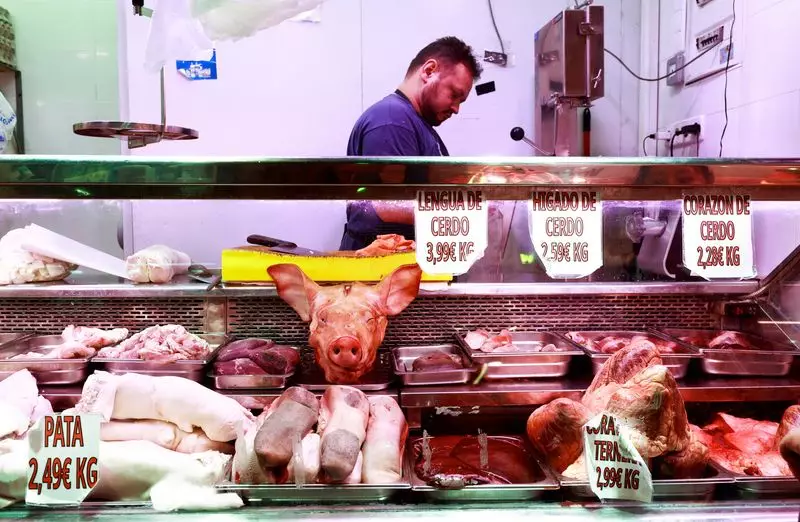China has recently opened an anti-dumping investigation into imported pork and its by-products from the European Union. This investigation, announced by China’s commerce ministry, is mainly targeted at countries like Spain, the Netherlands, and Denmark, in response to curbs on its electric vehicle exports. The focus of the probe will be on pork intended for human consumption, including fresh, cold, and frozen whole cuts, as well as pig intestines, bladders, and stomachs. This move comes following complaints from the China Animal Husbandry Association on behalf of the domestic pork industry. The investigation is set to begin on June 17, aiming to address the imbalance caused by anti-subsidy duties imposed on imported Chinese cars by the European Commission.
As the global food companies brace for retaliatory tariffs from China, the state-backed Global Times newspaper had first reported the possibility of Chinese firms seeking an anti-dumping investigation into European pork products. European dairy imports have also come under scrutiny as Chinese authorities hinted at possible retaliatory measures. Despite the EU’s reassurance that it would intervene appropriately to ensure compliance with World Trade Organisation rules, some countries like Spain have called for negotiations to avoid tariffs on their pork exports to China. With the EU accounting for more than half of China’s imported pork, valued at $6 billion, countries like Spain, the Netherlands, and Denmark are at the forefront of this trade conflict.
Growing concerns over Chinese industrial overcapacity and the flood of cheap products, including electric vehicles, into the EU market are creating new challenges for European producers. Import tariffs imposed by the U.S. in 2018 marked the beginning of the trade war with China, prompting the EU to adopt a more protective trade policy. Anti-dumping duties are typically imposed on imported goods suspected of being sold below production costs to protect domestic firms. While European pork producers can continue exporting to China tariff-free during the investigation, the uncertainty surrounding the outcome remains a significant concern. The completion of the investigation by June 17, 2025, with a possible six-month extension, adds to the challenges faced by European producers in navigating the complex trade landscape.
The ongoing trade disputes between China and the EU highlight the broader implications of protectionist measures in the global economy. The need for free and open markets based on rules-based trade practices is emphasized by industry experts. Jens Eskelund, president of the European Union Chamber of Commerce in China, acknowledges the cyclical nature of such investigations and stresses the importance of maintaining transparent trade relations. As countries navigate the complexities of international trade, finding a balance between protecting domestic industries and fostering global cooperation remains a key challenge. The outcome of the anti-dumping investigation on European pork imports will not only impact trade relations between China and the EU but also serve as a benchmark for future trade disputes in the evolving global landscape.

